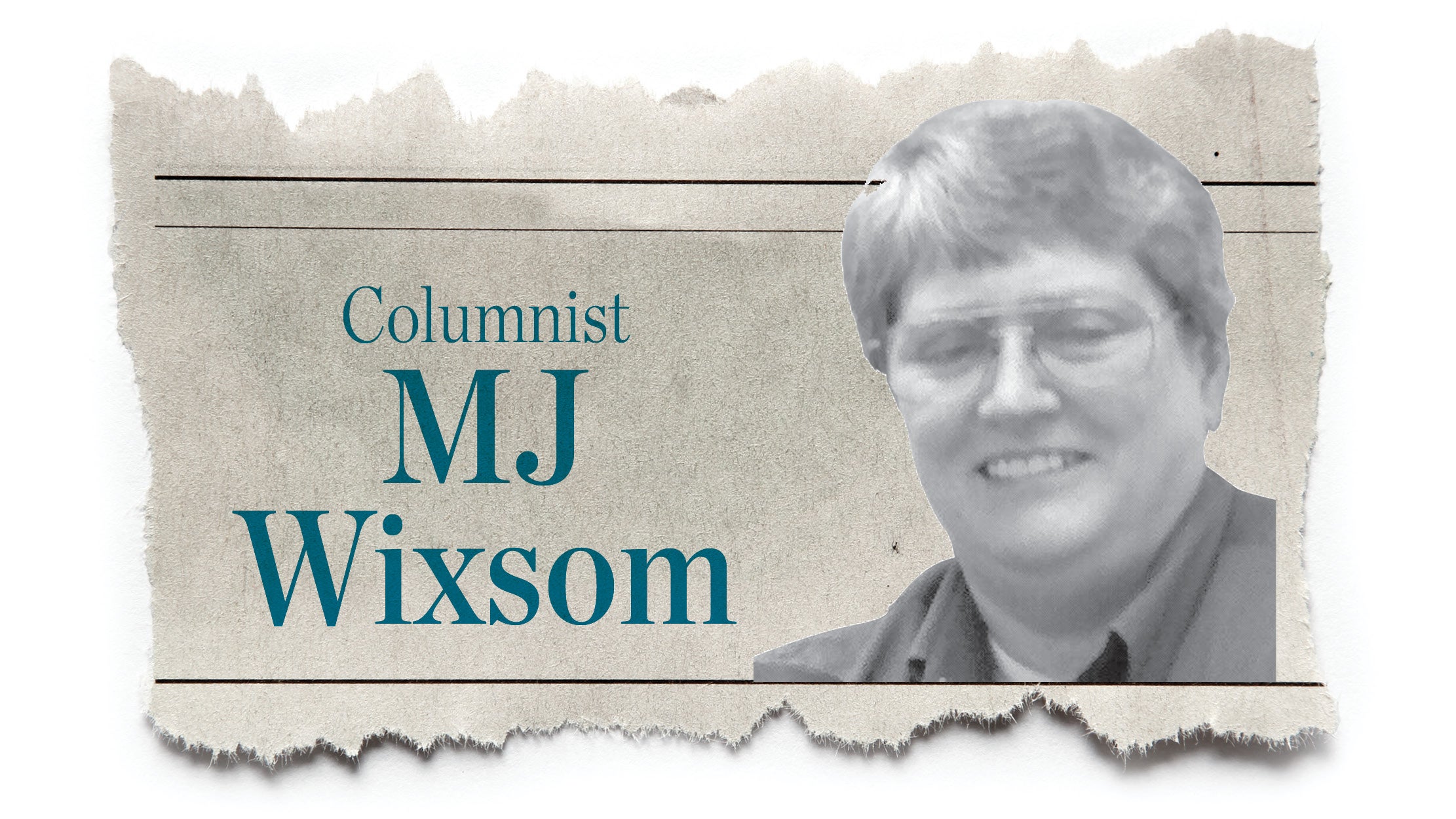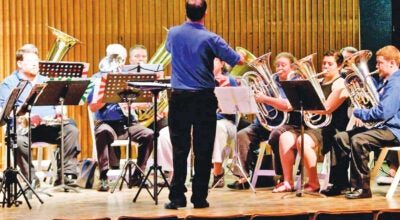A Taxing Balance
Published 11:08 pm Saturday, March 28, 2009
Taxes. Just the utterance of the word makes residents cringe, politicians run for cover and voters sprint to the ballot box.
However, like it or not, taxes allow the federal government, the state of Ohio and local governments like the city of Ironton to operate and administer many of the required services citizens have come to rely on daily, if not hourly.
Because income tax collections make up a little more than half of a city’s general revenues, the ability of municipalities like Ironton to get higher general fund revenues without raising taxes means more people must be working, or are making more money at their jobs, or the cities are able to collect more of the taxes actually due to them.
Just as important, it also requires a keen, yet committed eye, on watching and monitoring expenses.
For fiscal year 2009, Ironton officials estimate the city’s general revenues at $4.8 million, of which $2.15 million will come from the city’s 1 percent income tax rate.
Ohio law mandates that employees pay an income tax where they work, but if there is no income tax in the municipality or township where they work then individuals must pay an income tax where they live. Ironton has a 1 percent income tax in place for those who live and work within the city.
A 1 percent income tax rate is the highest allowable rate cities can have without being increased by a vote of the residents.
Ironton’s income tax of 1 percent is by far the lowest income tax rate compared to cities with the same population and median income in other parts of the Ohio. A sampling by The Tribune of 10 Ohio cities with the roughly the same population and income base showed income tax rates anywhere from 1.4 percent to as high as 2 percent.
The city also collects that 1 percent income tax from Ironton residents who work outside the city in areas that do not have a current income tax structure and a half-percent for residents who work outside the city in municipalities that also have an income tax structure based on a 50-percent tax credit reciprocity agreement Ironton City Council adopted in 2004.
Before 2004, Ironton had a long-standing reciprocity agreement that meant that Ironton residents working in municipalities such as Ashland, Ky., who also have an income tax didn’t have to pay Ironton’s 1 percent since they were paying elsewhere.
In 2004, the city council reduced the plan to 50 percent reciprocity meaning that people who work in another city and pays a municipal income tax there also have to pay a half-percent income tax in Ironton.
This means that an Ironton resident working in Coal Grove is required to continue to pay Coal Grove’s 1 percent but now pay 50 percent of the city of Ironton’s income tax as well.
The change also extended the reciprocity to now apply to Kentucky’s municipalities that technically have an occupational tax, not a user fee, and also extended to areas like Boyd County, Ky., that aren’t municipalities at all.
In recent years, cities like Ironton have also initiated so-called “fees” to patch the gap that lower income tax collections and higher expenses have brought to many cities in Ohio. Currently, Ironton households pay an $8 monthly “municipal fee” for city services.
So is Ironton’s current income tax and municipal fee structure the best and most effective way to collect the $2.15 million needed for the city’s coffers or is there a better formula? Some say yes and some disagree.
“I think we really need to take a serious look at our current tax code,” said Ironton City Councilman Mike Lutz. “We have a tax code that was written in 1969 and based for a time when more people worked in the city.”
The Tribune examined three different methods the necessary funding can be raised (including the current method) and the pros and cons of each.
The Basics: What do income taxes fund?
In relative terms, the city of Ironton’s budget is divided into two major, but very different funds: Enterprise Funds and General Funds. Each fund provides money for separate department types that generate revenue in different ways.
Enterprise funds: Specific fees that can only be used for specific needs:
The city of Ironton’s enterprise funds are solely based on specific fees paid by consumers for a specific product, such as fees paid for water or sewage service.
For example, the city of Ironton’s water fund relies on the revenues generated only from water fees. The money is dispersed to five departments that fall under the water fund: water administration, water treatment, water distribution, water meters and equipment replacement.
Revenues generated from sewage fees can only be used to fund the departments that fall under the wastewater fund: wastewater treatment plant, wastewater collections department (storm sewers), and equipment replacement.
Money cannot be transferred from a specific enterprise fund to another fund without an ordinance from city council. While the fees that carry the fund are designed to pay expenses and carry a modest reserve for any emergencies, large balances in the city’s water or sewer fund would indicate that maybe water and/or sewer rates are too high while a fund in the red indicates that fees might be too low or expenses are not in line with the fee.
General Fund: The fund for the needs of the citizens:
The city of Ironton’s general fund is the account that finances the city’s primary responsibility — provide services to the city. The city’s income tax provides the most money to the general fund.
The general fund does not rely on sales to generate money. Instead, tax dollars provide the money needed to keep the coffers full in the general fund.
Other tax items also provide money to the general fund. Personal and general property taxes, rollback and homestead taxes provide money to the city after these monies are certified by the county auditor’s office. These taxes cannot be increased or decreased without seeking approval from the county.
The municipal fee also provides around $460,000 towards the city’s general fund.
Salaries and benefits are the main debts encumbered by the general fund. Those departments include the mayor’s office, finance department, fire and police departments, municipal court, engineering, building maintenance, income tax department, civil service, attorney, city council, police dispatchers, community corrections, health department and the street department.
The account houses the payroll line items for the city’s service departments and for the flood fund, recreation fund, swimming pool fund, police and fire pension funds, street fund and health fund.
Salaries and benefits make up 70 percent of the payout from the general fund.
Transfers to other funds — money can be pulled from the general fund to shore up enterprise funds — normally equals 15 percent of the general fund’s expenses and remaining 15 percent normally is used for the operating costs for departments allocated through the general fund.
The Options – The 2009 current tax and fee structure:
Ironton operates with a 1 percent income tax rate for all residents and a 50-percent tax credit reciprocity agreement for residents who work in municipalities that also have an income tax. They city also receives income from an $8 per month municipal fee from more than 4,600 Ironton households.
Pros: Under the current system, the city of Ironton has been able to provide and submit a balanced budget while having little issue in terms of income tax collections. As of Friday, Ironton Finance Director Kristen Martin said income tax delinquencies for the past five years combined is only at $30,000 — considered a low number for a community Ironton’s size.
“We have a very concrete process as to how we collect taxes,” Martin added.
Also, with revenues coming in from both an income-based system (income tax) and flat-based system (municipal fee) the city has been able to weather the economic downturn other cities have suffered through with only an income based tax method.
Cons: The view of double taxation and paying a fair share. While income tax payments vary on a scale on how much an individual makes, every household pays the same $96 annually for the municipal fee regardless of income.
Eliminate or lower municipal fee and raise income tax rate:
Pros: Would eliminate or lower the often controversial municipal fee at the satisfaction of households while shifting entire city tax burden to residents who work in and out of the city while keeping the 50-percent tax credit in place.
Raising the city income tax rate to 1.25 percent would cover the gap from eliminating the municipal fee in full and would show additional revenue if the fee would be lowered.
Cons: First, any type of income tax increase would have to be put on the ballot which based on recent history would face severe opposition.
Second, having income tax revenue based solely on income leaves the city in a dangerous position should jobs continue to leave Ironton and population shift.
Third, it puts city services on only those who are employed and not on all residents who benefit from them. Fourth, cities never like to cut potential funding they already have voted on to accept.
Eliminate or lower municipal fee and eliminate tax credit:
Pros: It forces every Ironton resident to pay the 1 percent income tax rate regardless if they work in or out of the city or even in a city with a current income tax rate.
Many communities who have lost a large amount of medium and large businesses and have become “cities of homes” have eliminated their tax credits all together. It also would eliminate or lower the municipal fee at the satisfaction of households while shifting entire city tax burden to residents who work in and out of the city.
Cons: Even if the tax credit were eliminated, the revenue it would generate would only allow the municipal tax credit to be lowered, not eliminated. If eliminated, Martin said the city would end up with lower income tax collections than they are currently receiving based on 2009 numbers.
So which is the correct “balance” for the city of Ironton? That is for voters, city council and the mayor to examine. But one thing virtually everyone agrees on — it does needs to be examined.
Lutz agreed.
“We’re at the beginning, but there have been discussions regarding taxes and reciprocity.”




